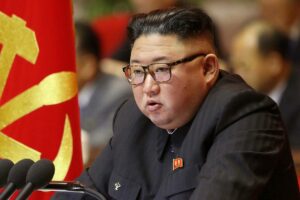Puliti joins as the vice-president for Asia and the Pacific at the International Finance Corporation, at a time of multiple crises and a deteriorating global economic outlook.
The International Finance Corporation (IFC) has appointed Riccardo Puliti as its regional vice-president for Asia and the Pacific.
He will continue to be based in Washington DC, United States, but will drive the World Bank private investment arm’s regional efforts. He joins at a time of deteriorating global economic outlook due to higher food and energy prices from the Russian-led war in Ukraine as well as lingering pandemic disruptions.
“With the global economy facing multiple headwinds this year, there is an urgent need for more private investment in the region to create jobs and boost output,” Puliti said in a statement. “With the right policies in place to attract and incentivise new investment, countries can leverage private sector financing to help meet their large investment needs.
The Italian national takes on his new role after six years with the organisation, where he has helped build infrastructure in developing and emerging markets as well as design the bank’s power, oil, gas, and mining policies globally.
Before joining the World Bank Group, Puliti spent two decades as managing director at the European Bank for Reconstruction and Development, where he steered investment strategies in the fossil fuel energy sectors.
“Asia and the Pacific is one of the most vulnerable regions to climate shocks, underscoring the need for urgent action to protect the lives and livelihoods of billions of people,” Puliti said. “The region also needs to bridge the massive trillion-dollar infrastructure gap, limiting people’s access to basic services.”
IFC’s financing for Asia and the Pacific has included US$2.34 billion in equity, loans and bonds, including social bonds for financial institutions to support micro, small and medium sized (MSMEs) enterprises, which are considered the region’s growth engine.
Source : Eco Business















